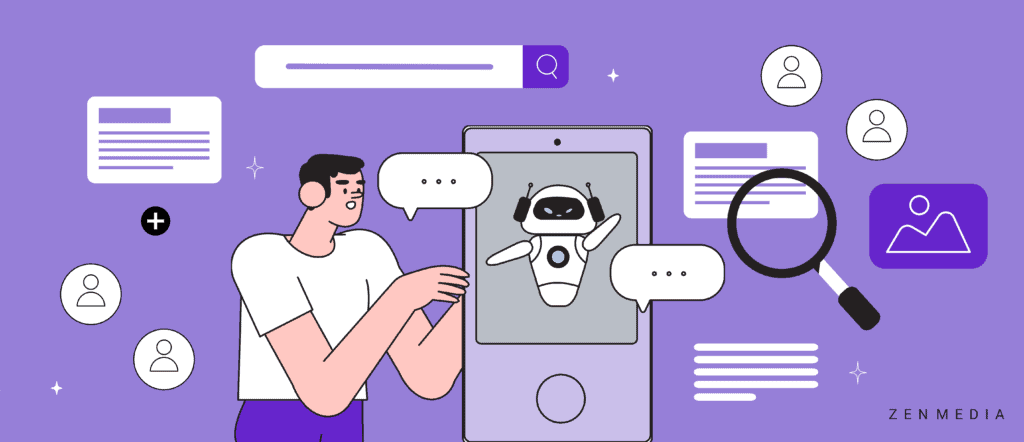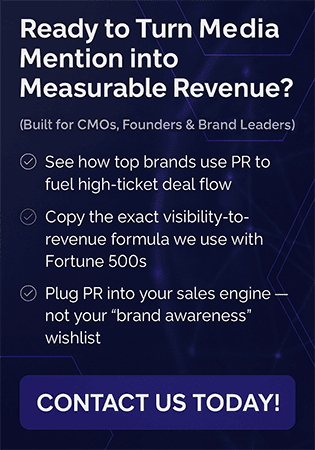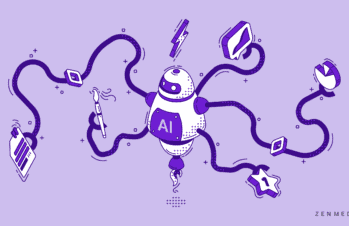2023 was the year of artificial intelligence. Generative learning and large learning models are advancing so quickly that in 2024, AI sounds like old news. AI has made human perspectives and original thought critical to standing out in a cyber-environment of AI-generated content.
AI’s Dominance in Content Generation
Experts estimate that as much as 90% of online content will be AI-generated by 2026.
Think about Wikipedia pages, updated by faithful users on niche topics—that kind of manual updating may no longer be needed. AI can also complete the more technical and mundane tasks of summarization, organization, and categorization.
Yet, the Human Perspective Remains Important
With all this change, where do human creativity, perspective, and individuality fit in?
In 2024, the unique human point of view is like a well in the middle of the desert. Even in a world where creators can reach infinite people with their audiences, they often err on the side of imitation rather than creation.
What needs to be infused into content marketing is a unique point of view—a connection point.
Because most of us spend most of our waking hours using the internet, we are effectively stuck in our feeds. We know from research studies that our feeds reinforce the ideas we already hold, keeping us inside our own respective echo chambers.
Breaking out of that echo chamber isn’t only critical for personal growth and fulfillment—it also applies to our businesses. Differentiation in messaging via a confident point of view is essential for business leadership and growth.
Authenticity is (Au) Golden
“The rise of AI is creating new opportunities for learning and personal growth, helping people unlock their full potential.” – Sundar Pinchai, CEO of Google
What is captured in the quote is the real beauty of AI, the ability to enhance human strengths and traits.
AI needs to be properly employed to help a company lean into their own POV. Without that unique POV, they may fall into the trap of treating AI like an oracle rather than a tool.
As written about in an earlier AI-centric Zen Media blog post, The Authenticity Advantage: Connecting in an AI-Filled World, the intensification of AI algorithms and AI-generated content makes it more difficult to connect in an authentic way. In large part, there is value to AI-generated content, especially as it pertains to SEO and competing with trends.
Marketers need to recognize that content didn’t start with the internet–hieroglyphs and canonical literature are content. The human hand is essential in content marketing to effectively add value and strike an emotional connection with target buyers. Your company’s bottom line and long term growth are dependent on the brand’s ability to build authentic buyer-seller relationships.
In terms of content marketing, this means that companies should lean into their ethos and mission, and play it up! Have more conviction—don’t lower the standard because of what other brands might be doing.
Sundar Pinchai uses the phrase “full potential,” and in 2024, that is what brands should focus on in their content marketing strategy.
- How can you push the limits of AI-powered content creation?
- How can you use the best of AI and still keep the brand’s “soul?”
- What is the brand willing to say, or not say?
- Is the brand still a brand, or is it simply one of the many companies within its respective industry?
These are hard questions, but they are also exciting!
Content Marketing and AI: 2024 Edit
As part of your brand’s content marketing strategy, you can leverage AI to:
- Write knowledge base articles based on technical documentation
- Summarize policies in FAQ sections
- Make bulleted lists from sales presentations
- Create templates
- Provide “digests” of longer meetings or reports
There are a few brands that come to mind that have been consistent in who they are and what they stand for, such as Hill House Home, Melissa Wood Health, and Notion, to name a few.
Each has their own niche, and they are consistent in their values and vision. Marketers from each of these companies hone in on a unique point of view and run with it. Market trends play a role in how they conduct themselves online—however, they aren’t bound to the shackles of dated strategies and takes.
AI can be helpful with niche marketing strategies, and can assist in hyper-personalization—if you use the tools correctly. Ideally, this will be for more tactical, execution-based tasks like outlines, organization, and iterating on audience types.
Related Reading: The Human Touch in a Digital World: AI-Assisted Niche Marketing
So, Did AI Kill Content Marketing?
Yes. No. Kind of.
AI killed content marketing in the sense that mundane copy written by the human hand is on the brink of extinction.
In this quickly transforming environment, companies should be investing in:
1. Balancing AI with Human Skills
Writers’ skills as prompt engineers who can quickly yield high-quality content that shows up in search engines, is accurate, and helps establish a credible online presence, remain necessary.
When I first started writing You Probably Need a Robot, one of the points that I repeatedly explained was that AI won’t replace humans. AI will replace humans who don’t know how to work alongside AI.
Rather than forcing writers and marketers to compete with a global android superbrain network, provide them with the training and tools that they need to use AI effectively. This will provide them with the skills they need to be amazing marketers who yield the content marketing needs for collateral, presentations, and more.
2. Quirky, Out-of-the-box Thinkers
As mentioned above, standing out among competitors is a challenge. It’s impossible when there’s no novelty or leadership.
At Zen, when we sign on a new client, we study the brand’s voice and make recommendations as to how it should be refined and enhanced. It’s crucial that brands don’t operate in the fear zone, in which they are afraid that their audience will not like their latest product or campaign. Sometimes they are compelled to stay in the box, rather than take risks and offer unique points of view and niche material. As marketers, we need to be the ones to craft messaging and content that is compelling and exciting. That’s the job! Bottom-lining it: AI can help differentiate brands from competitors, when employed properly.
Abstract thinkers, artists, and creatives are beneficial in this sense because they are often unconventional and comfortable with trying new things. Artists know that there are infinite ways to paint a flower, so why copy Monet? Writers know that there are infinite ways to describe a flower, so why copy Shakespeare?
Certainly there are insights we can glean from the greatest of the great, but brands need to be more inventive.
Ways to do this include brainstorming sessions, creation of point-of-view guidelines that marketing will follow for newsletters, email marketing, social media campaigns, and speaking engagements. By prompting the AI to build out brand guidelines and reference documents, and learning to prompt for a variety of content, your company can leverage what AI is best at: quickly disseminating, explaining, and generating information. At Zen, we help our clients build out these guidelines every day!
These prompts are a great starting point.
Having a Unique POV
At Zen Media, our point of view is that marketing doesn’t need to be a nightmare. And that marketing, PR, and advertising can be zen: peaceful, mindful, and purposeful, without the chaos and struggle that are so often associated with marketing. Zen practices what we preach and brands see that—so they trust us. Working at and with Zen is intuitive and calm because we have confidence in how we work.
So, what is your brand’s point of view? And how will your marketing team balance its uniqueness with AI generated content?
Not sure? We can help.





